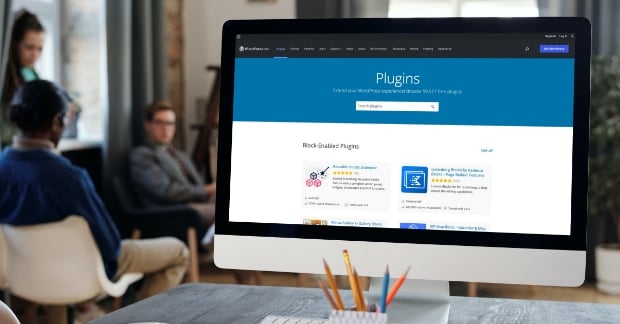Why is WordPress such a popular content management system? One word: plugins.
Built by a large and passionate community of developers, these (mostly) free or low-cost plugins add functionality to WordPress that would otherwise take hundreds of hours to build. And although many plugins are a time- and cost-effective way to create a robust site, using poorly programmed plugins can actually harm your website. To avoid slow load speeds, broken functionality or, worse, a dangerous security risk, follow these five tips:
1. Stick with the most popular (and highest-rated) plugins
Unless you’re looking for super specific functionality, it’s best to stick to plugins with the most downloads and best user reviews in their respective categories. After all, if a lot of other people have used the plugin with success, then it should work for you, too.
Bonus tip: if you find a plugin through Google, go to the official WordPress marketplace to read the reviews before installing anything.
2. Use plugins made by the same developer
If you love a particular plugin, check to see if the developer has created any other ones. This will reduce the risk of incompatibilities since the publisher will have (hopefully) tested their plugins to be compatible with one another.
3. Check the plugin’s file size
After you’ve downloaded a plugin to your hard drive, check its file size. Anything over 1 MB better be a really serious plugin with advanced functionality…if not, it’s just going to slow down your website.
4. Avoid multi-tasking plugins
I’m always weary of plugins that claim to do too much. (A plugin that can build image sliders AND detail your car? WOW!) The best plugins generally do one thing, and they do it really well.
5. Don’t modify the plugin
Since WordPress is an open source platform, it can be tempting to go in and edit a plugin’s code. Unless you’re really confident in what you’re doing, it’s best not to tinker behind the scenes. (Also, if you update the plugin in the future, all of the changes that you made will be lost.)






